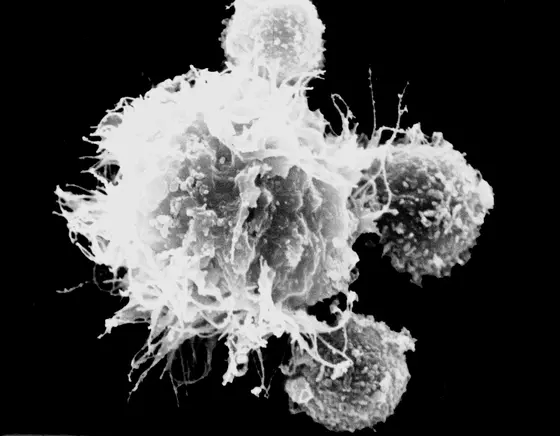In recent times, physicians have achieved spectacular clinical successes with cancer immunotherapies. There have even been cases of long-term regression in advanced stage cancers where until now medicine failed to be effective. Cancer researchers aim to adjust these treatments still more precisely to the individual disease. Advanced methods of molecular high-throughput analysis facilitate identifying the targets on cancer cells specifically and thus tailoring immunotherapies to the individual patient.
At the new Helmholtz Institute HI-TRON, the German Cancer Research Center (Deutsches Krebsforschungszentrum, DKFZ) has now teamed up in this seminal research field with the Research Institute for Translational Oncology (TRON) at the University Medical Center Mainz.
Prof. Dr. Michael Baumann, Chairman of the Management Board of the German Cancer Research Center, said: “For developing novel cancer therapies successfully, it is crucial that researchers, researching physicians and clinicians should all be working hand in hand. In order to make this possible, the German Cancer Research Center relies on collaborations and intensive networking with excellent partner institutions. In TRON we have found an internationally renowned partner with whom we are joining forces to achieve further advances in the principal and seminal area of cancer immunotherapy. We will now be able to join up the strengths of both institutions – in order to offer more effective treatments to cancer patients as swiftly as possible.“
Following the start-up phase, HI-TRON will receive annual funding of more than €5 million from the Helmholtz Association. The state of Rhineland-Palatinate and the DKFZ will additionally provide substantial initial financing.
TRON in Mainz is one of the world's leading institutes in research on the identification of biomarkers and personalized immunotherapy. The collaboration with the DKFZ is aimed above all at accelerating the translation of excellent immunology research and innovative therapy approaches into the clinic. Up to now, little is known why immunotherapies are effective in some patients and fail in others. Therefore, another major aim of the new research alliance is to identify biomarkers that facilitate assessing the prospects of success of an immunotherapy before starting treatment.



